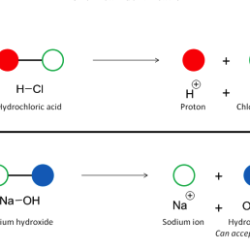Source Institutions
Source Institutions
Add to list Go to activity
Activity link broken? See if it's at the internet archive

In this activity, learners discover how a cabbage juice indicator helps identify acids and bases, and how iodine indicates the presence of starch. Learners test cream of tartar, baking soda, lemon juice, and vinegar with the cabbage juice, then mix acids and bases together to observe what happens. They also test paper for starch with iodine, and write a "secret message" with a wax candle on paper that is revealed when the paper is brushed with iodine. Adult supervision is recommended.
- 30 to 45 minutes
- 10 to 30 minutes
- $10 - $20 per student
- Ages 4 - 8
- Activity, Experiment/Lab Activity
- English
Quick Guide
Materials List (per student)
- 1 bottle of cream of tartar
- 1 bottle of baking soda
- 1 bottle of tincture of Iodine
- 1 bottle of lemon juice
- 1 bottle of vinegar
- 1 big paint brush
- 2 plastic pipettes
- measuring cup
- 5 plastic test tubes with caps
- 1/4 small red cabbage
- pot
- water
- stove or hotplate
- household materials to test (e.g. baking powder, water, pieces of fruit, pickle, glass cleaner, soap)
- paper
- wax white crayon
- tape
- notebook and pen/pencil
Subjects
-
Life Sciences
-
Diversity of Life
- Plants
-
Diversity of Life
-
Physical Sciences
-
Chemistry
- Chemical Reactions
- Acids and Bases
- Solutions
-
Vibration and Waves
- Light and Optics
-
Light and Optics
- Sunlight and Color
-
Structure and Properties of Matter
- Atomic Structure
- Elementary Particles and Nuclear Physics
-
Chemistry
-
The Nature of Science
-
The Scientific Process
- Asking Questions
- Conducting Investigations
- Gathering Data
- Formulating Explanations
- Communicating Results
-
The Scientific Process
Informal Categories
- Food and Cooking
Audience
To use this activity, learners need to:
- see
- see color
- touch
Learning styles supported:
- Involves hands-on or lab activities
Other
Components that are part of this resource:
This resource is part of:
Access Rights:
- Free access
By:
- Shaw, Maisie ; Gomez, Maria
Rights:
- All rights reserved, Passport to Chemistry Adventure Program, Mount Holyoke College, 2010
Funding Source:
- Camille and Henry Dreyfus Foundation, Inc.
